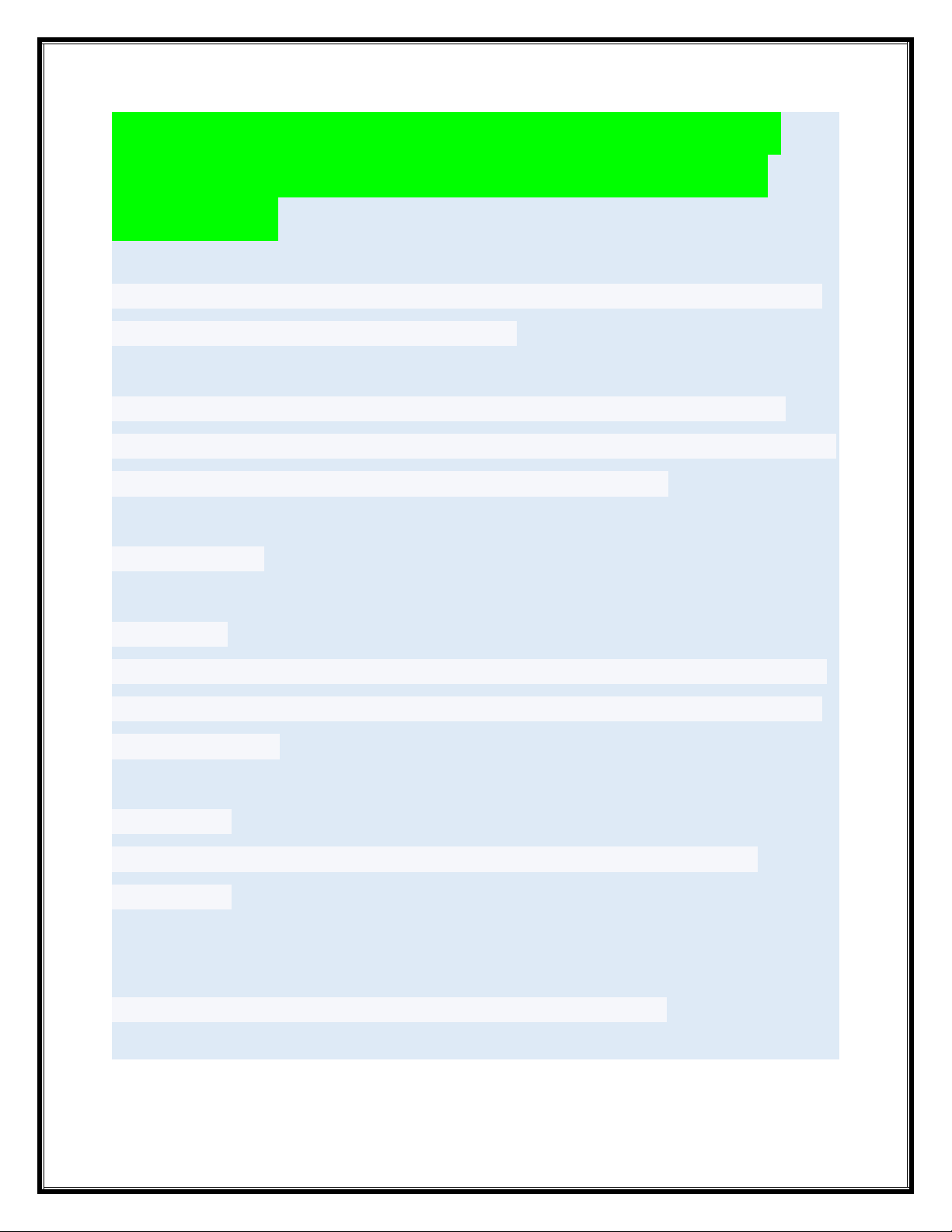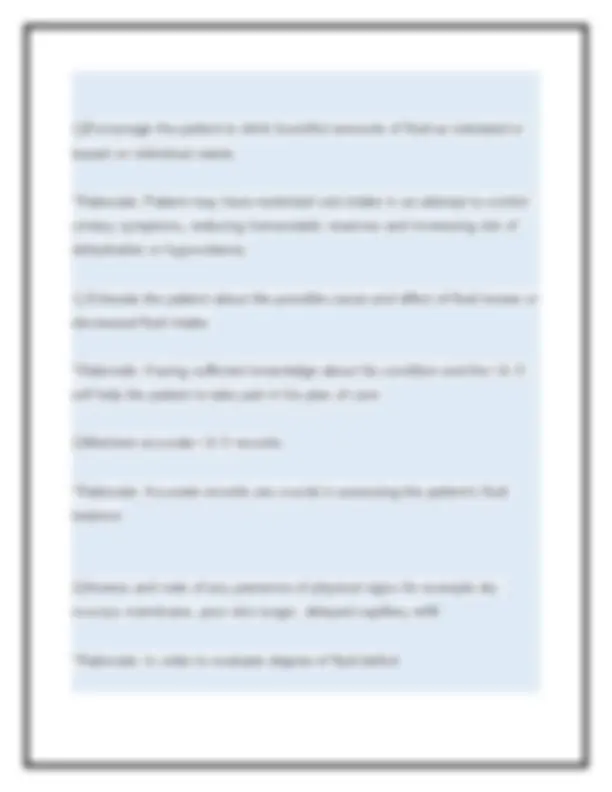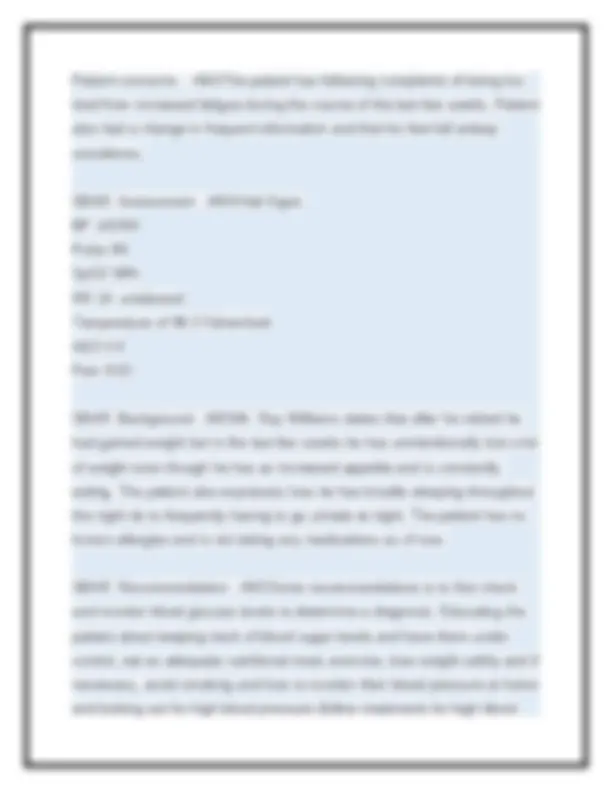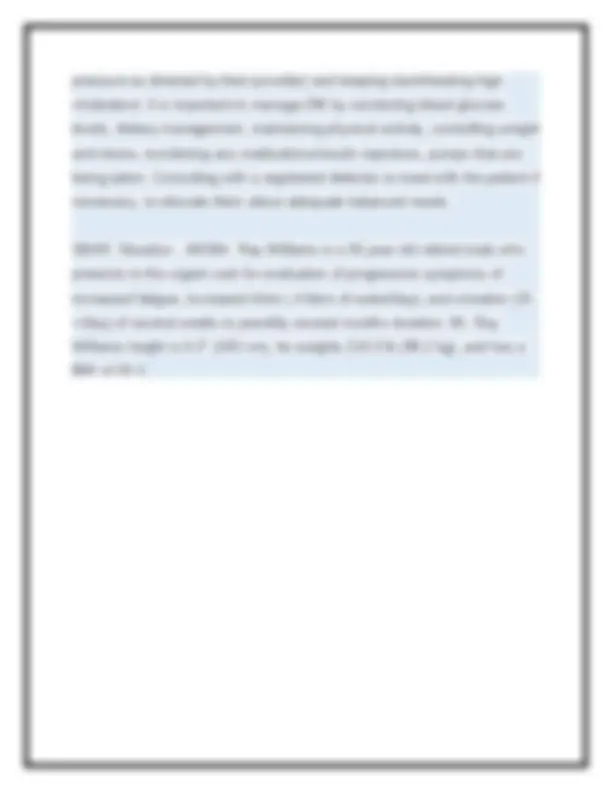





Study with the several resources on Docsity

Earn points by helping other students or get them with a premium plan


Prepare for your exams
Study with the several resources on Docsity

Earn points to download
Earn points by helping other students or get them with a premium plan
Community
Ask the community for help and clear up your study doubts
Discover the best universities in your country according to Docsity users
Free resources
Download our free guides on studying techniques, anxiety management strategies, and thesis advice from Docsity tutors
Ray Williams i-Human Questions and Correct Answers Updated 2025-2026 Graded A
Typology: Exams
1 / 5

This page cannot be seen from the preview
Don't miss anything!




cardiovascular system - ANSThe patient heart rate and rhythm is regular, there are no mummers or gallops present. Nursing Dx with 2 Long goals, 2 interventions for each - ANS-Nursing diagnosis: Deficient hypertonic fluid volume related to uncontrolled mellitus as evident by polyuria, polydipsia, fatigue and polyphagia. -Long term goal
1)The patient does not need to take any medications during this visit until he is further assessed and evaluated. *Rationale: Since the patient is new to diabetes, more lab works is required to determine what treatment is best for him. 2)Prevent further fluid losses and increase fluid compartment volumes to normal by the patient weighing himself daily after starting treatment. *Rationale: Weight is the best assessment data for possible fluid volume imbalance. Nursing Dx with 2 Short goals, 2 interventions for each - ANS-Nursing diagnosis: Deficient hypertonic fluid volume related to uncontrolled mellitus as evident by polyuria, polydipsia, fatigue and polyphagia. -Short term goal
Patient concerns: - ANSThe patient has following complaints of being too tired from increased fatigue during the course of the last few weeks. Patient also had a change in frequent elimination and that his feet fall asleep sometimes. SBAR: Assessment - ANSVital Signs: BP 142/ Pulse 86 SpO2 98% RR 18 -unlabored Temperature of 98.3 Fahrenheit A&O X Pain 0/ SBAR: Background - ANSMr. Ray Williams states that after he retired he had gained weight but in the last few weeks he has unintentionally lost a lot of weight even though he has an increased appetite and is constantly eating. The patient also expresses how he has trouble sleeping throughout the night do to frequently having to go urinate at night. The patient has no known allergies and is not taking any medications as of now. SBAR: Recommendation - ANSSome recommendations is to first check and monitor blood glucose levels to determine a diagnosis. Educating the patient about keeping track of blood sugar levels and have them under control, eat an adequate nutritional meal, exercise, lose weight safely and if necessary, avoid smoking and how to monitor their blood pressure at home and looking out for high blood pressure (follow treatments for high blood
pressure as directed by their provider) and keeping track/treating high cholesterol. It is important to manage DM by monitoring blood glucose levels, dietary management, maintaining physical activity, controlling weight and stress, monitoring any medications/insulin injections, pumps that are being taken. Consulting with a registered dietician to meet with the patient if necessary, to educate them about adequate balanced meals. SBAR: Situation - ANSMr. Ray Williams is a 55 year old retired male who presents to the urgent care for evaluation of progressive symptoms of increased fatigue, increased thirst ( 4 liters of water/day), and urination ( +/day) of several weeks to possibly several months duration. Mr. Ray Williams height is 6.0'' (183 cm), he weights 216.0 lb (98.2 kg), and has a BMI of 29.